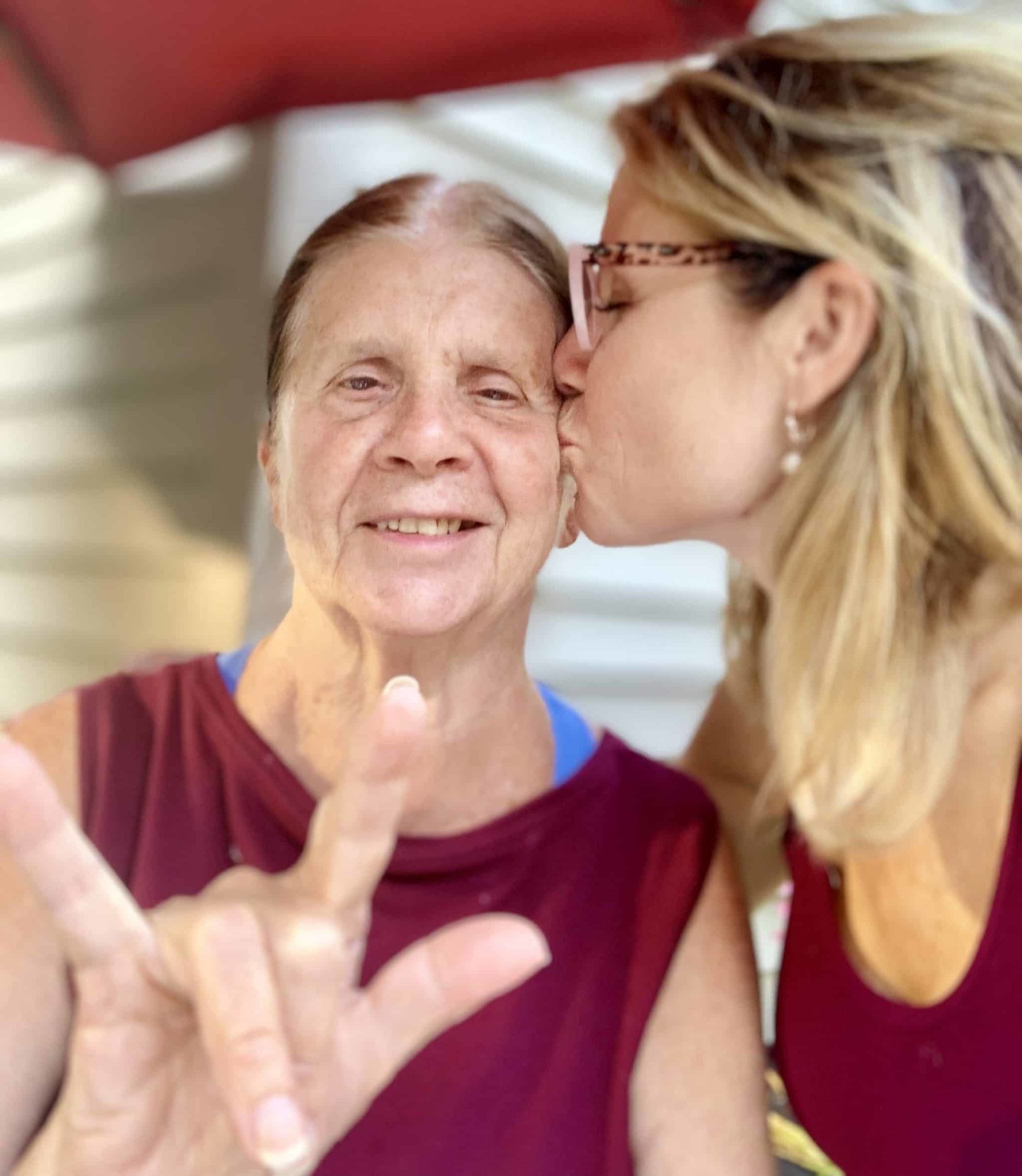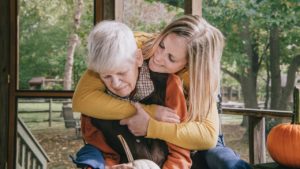The stories of people living with dementia and their families need to be told, heard, and valued.
I’m honored to share the life of, MJ Grant, as she describes the legacy of caregiving in her family, her transition to becoming a caregiver, and the isolation many Deaf people living with dementia experience.
- [06:26] MJ talks about the viral “Dementia Can Be Beautiful” video that has had more than 2.5 million views.
- [14:22] How MJ’s mom’s dreams of travel and enjoyment in retirement were thwarted by caregiving for her mom (MJ’s grandmother) who had Alzheimer’s.
- [18:23] Through the eyes of herself as a little girl, growing up, MJ experienced her mom as being dedicated to her and her sister and as a “survivor” working in a factory with not many people to talk with as a deaf person.
- [23:03] Becoming a caregiver seems to come so naturally to MJ, but she describes her experience coming to terms with it, “I never thought I would be taking care of my parents, ever, you know, so, so there was a little bit of struggle there for me”
- [26:44] MJ talks about the bind of being in the sandwich, between caring for children and for her mom and mother-in-law with dementia.
- [31:06] MJ shares how she talks with her 5 year old about dementia.
- [34:47] Being a CODA (a Child of Deaf Adults) is an important piece of MJ’s identity. She shares what this experience was like for her and what life was like for her mom as well.
About Mary Jane “MJ” Grant
MJ Grant is a CODA, that’s a “Child of Deaf Adults”. MJ was born to Deaf parents and has been a member of the Maine Deaf community since childhood. She currently provides sign language interpreting services to Deaf communities in New England. She’s married, caring for aging parents, and parenting four children ranging in age from 6 to 25.
Watch the video that went viral of MJ talking with her mom below. You’ll want to grab a box of Kleenex.





